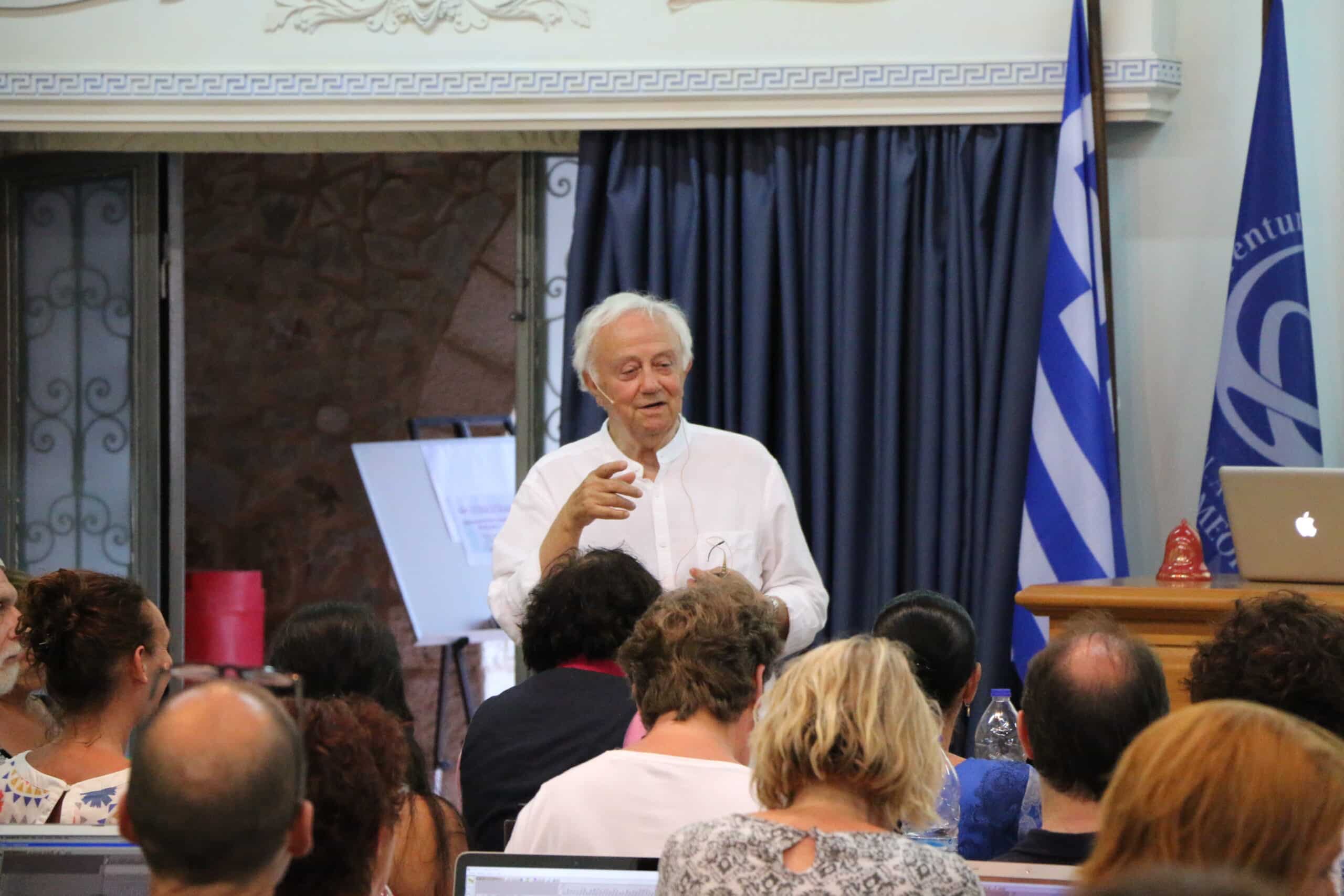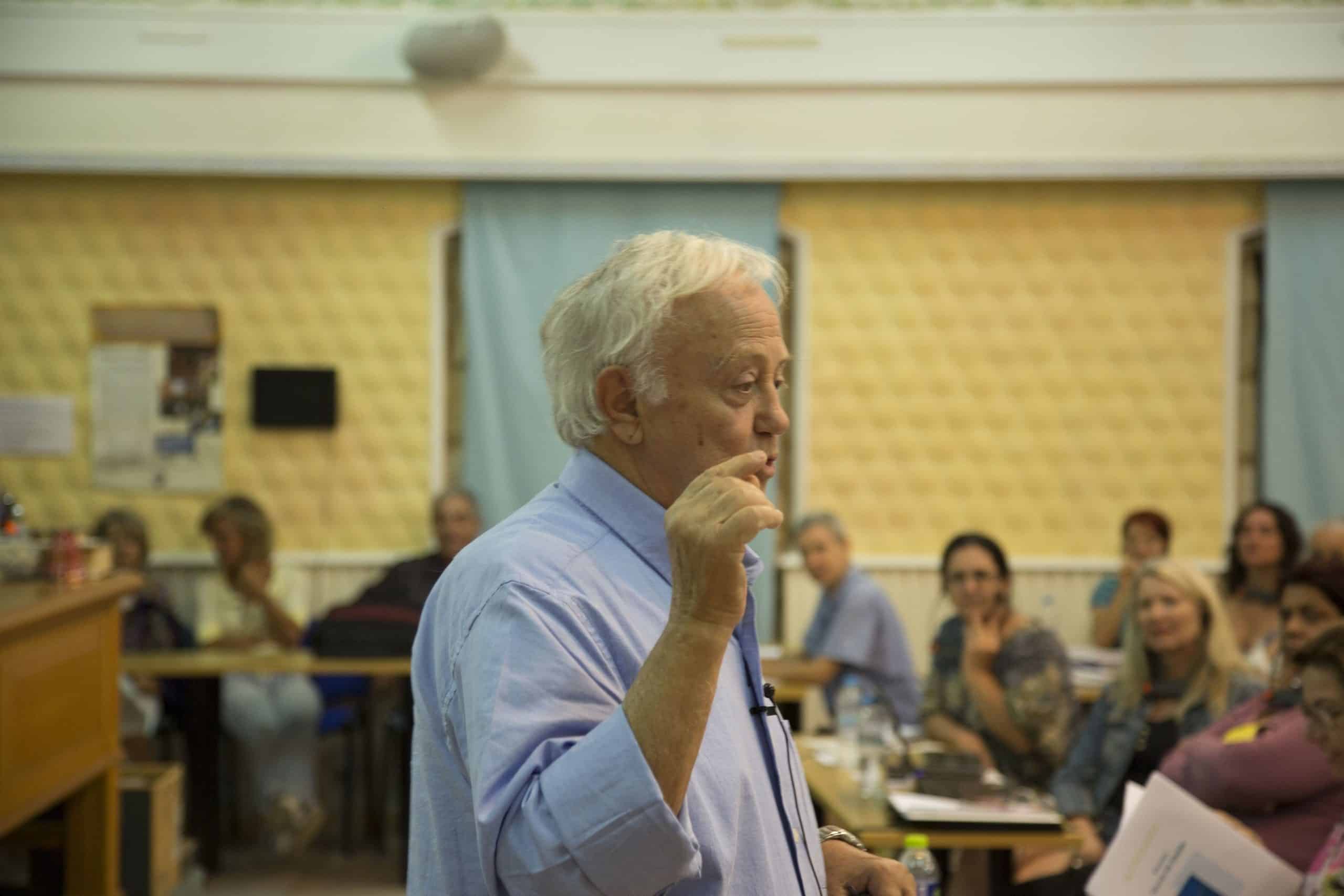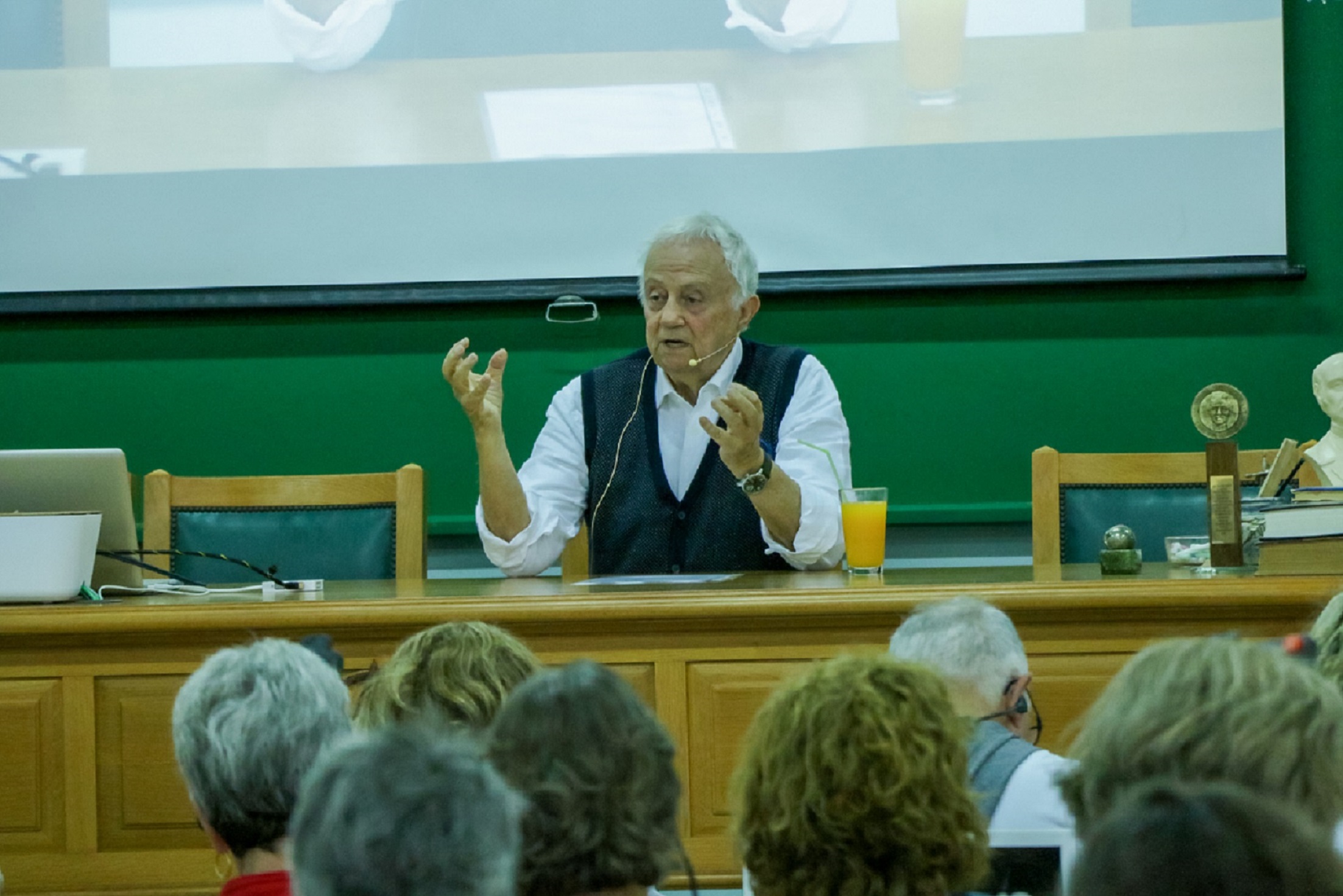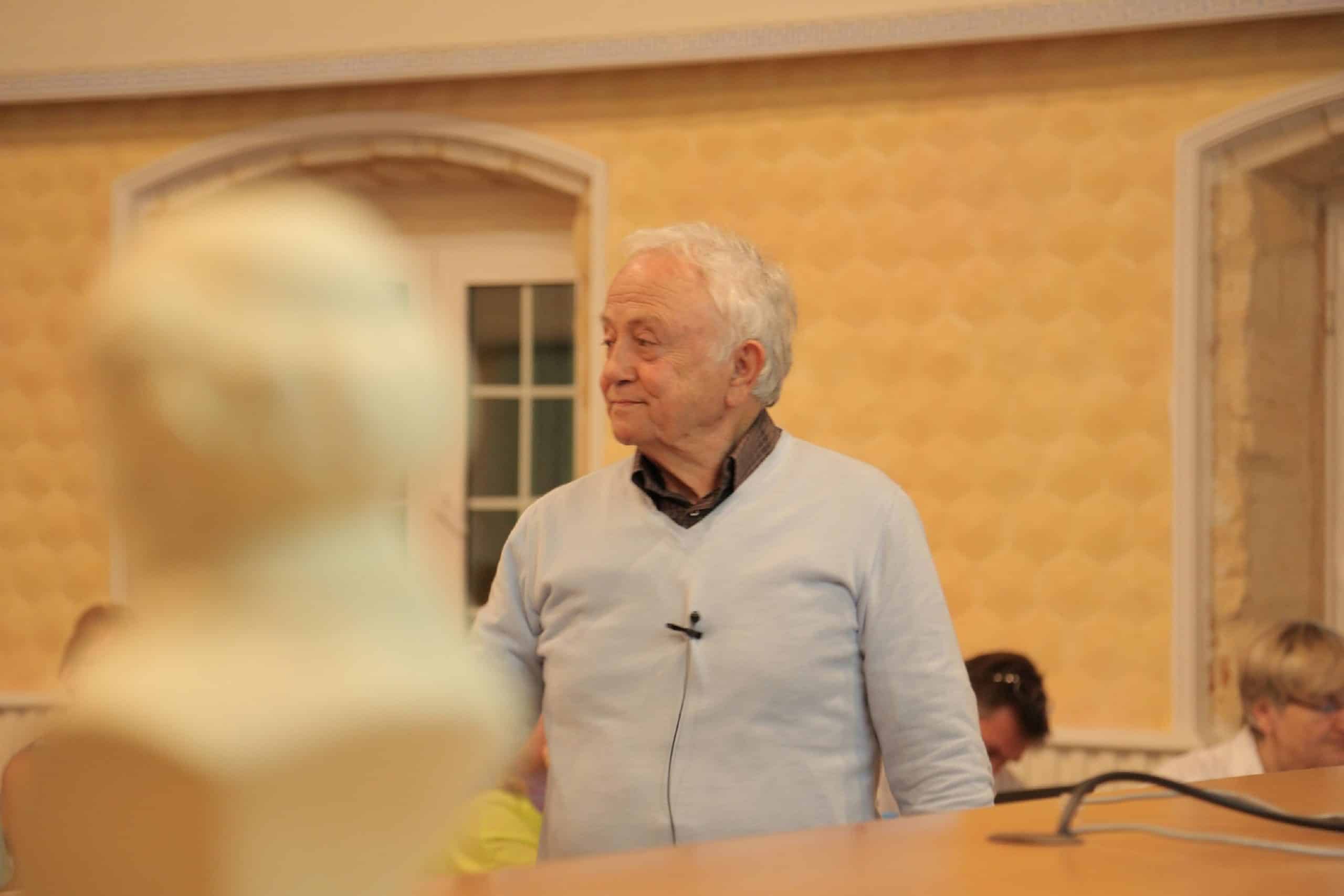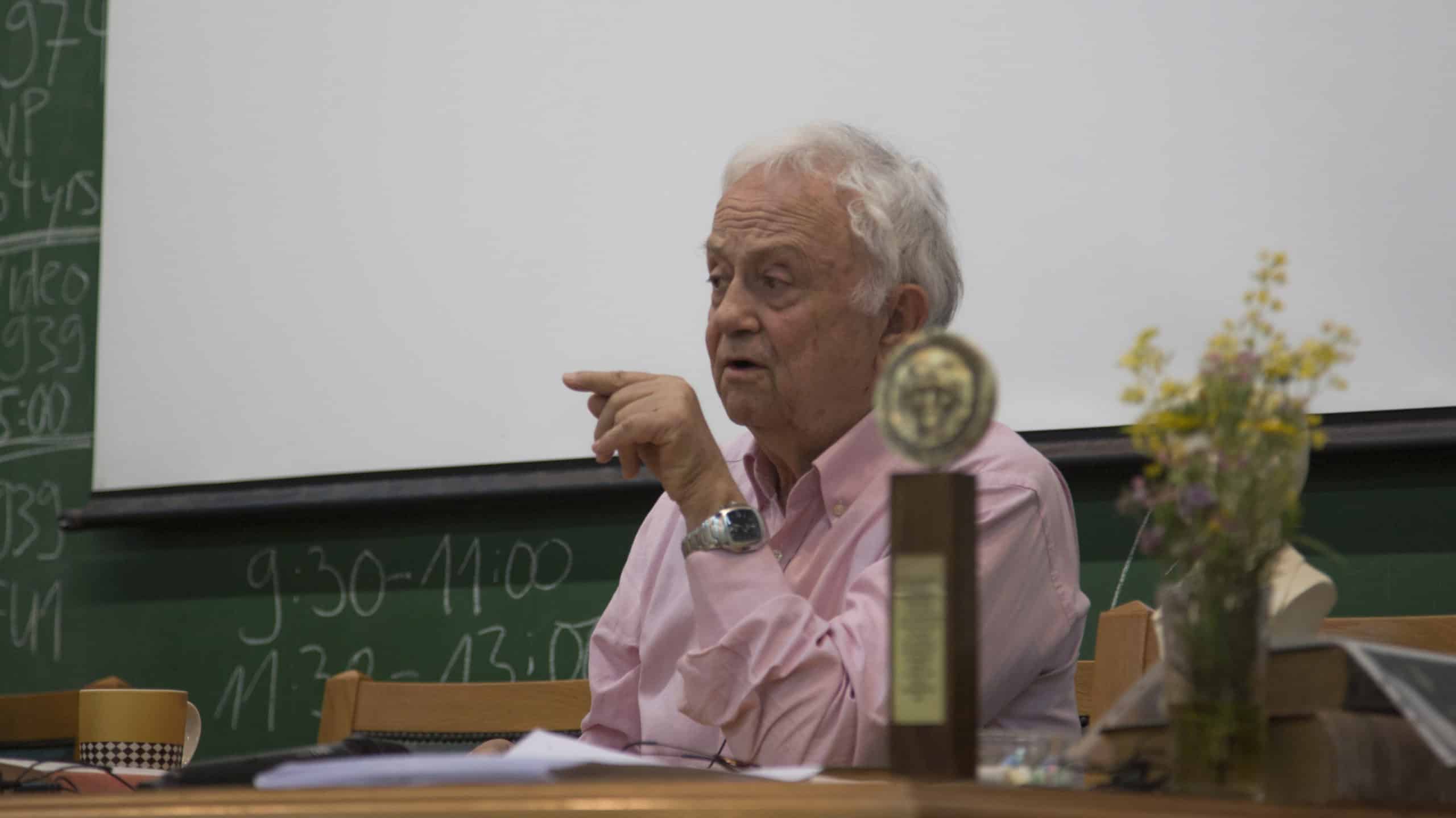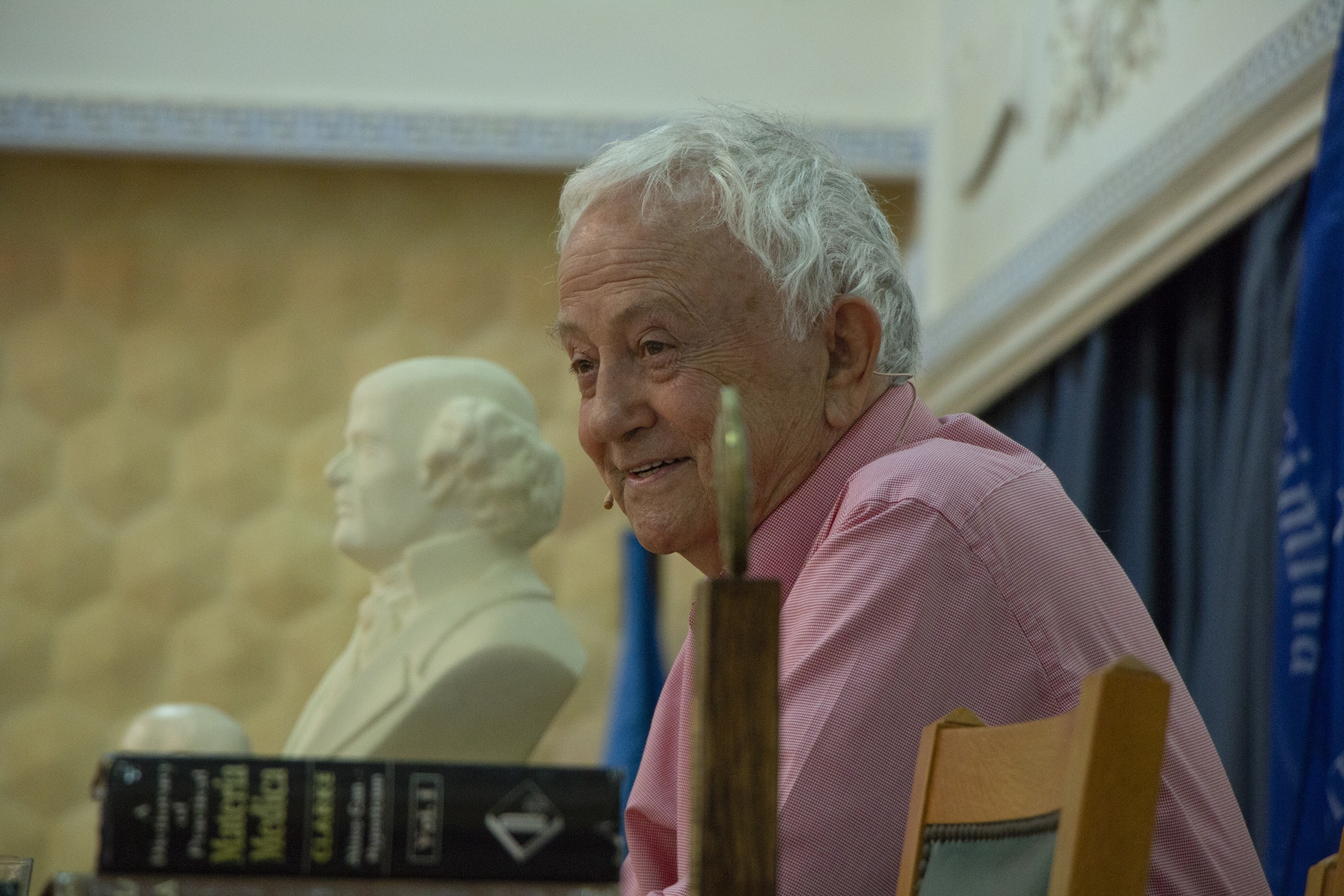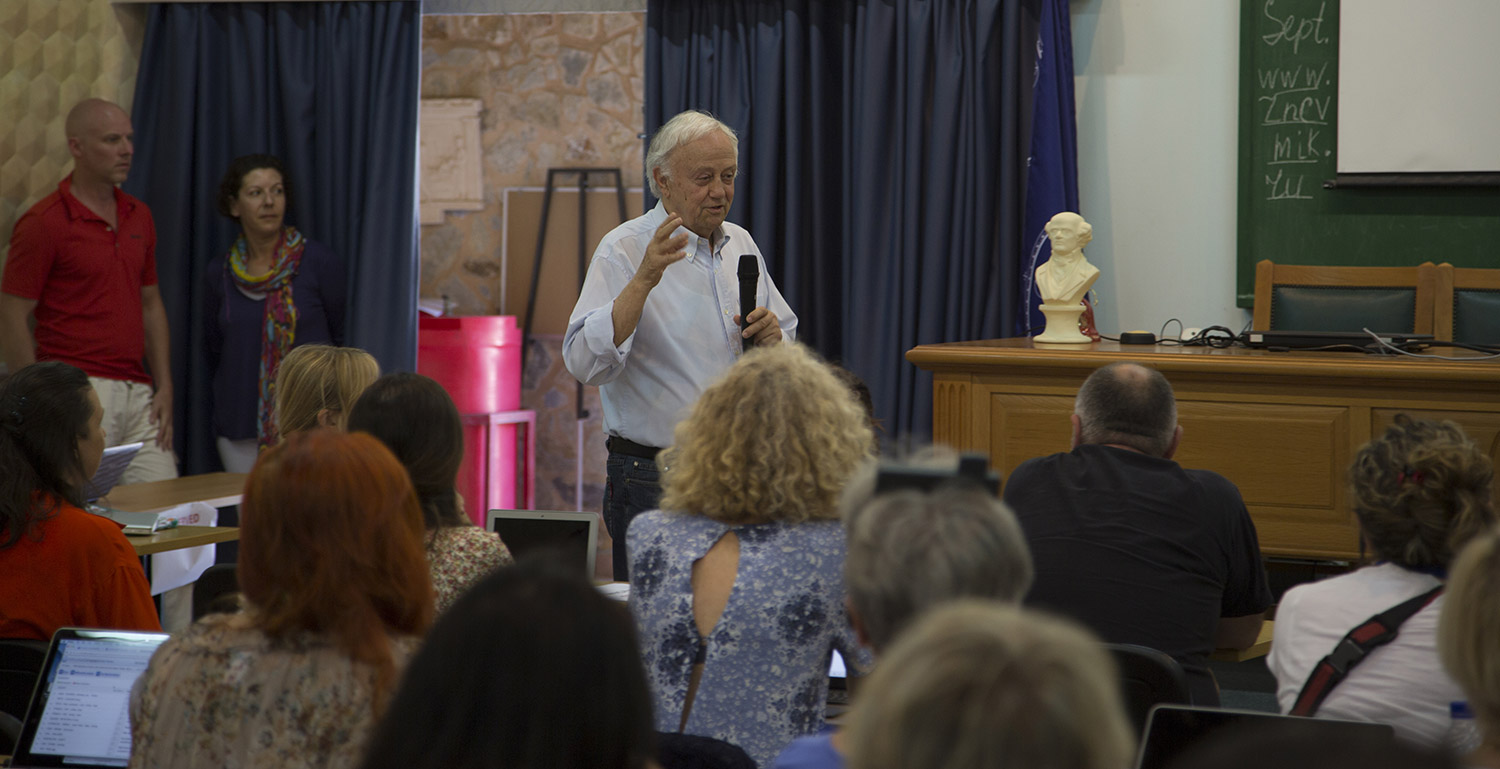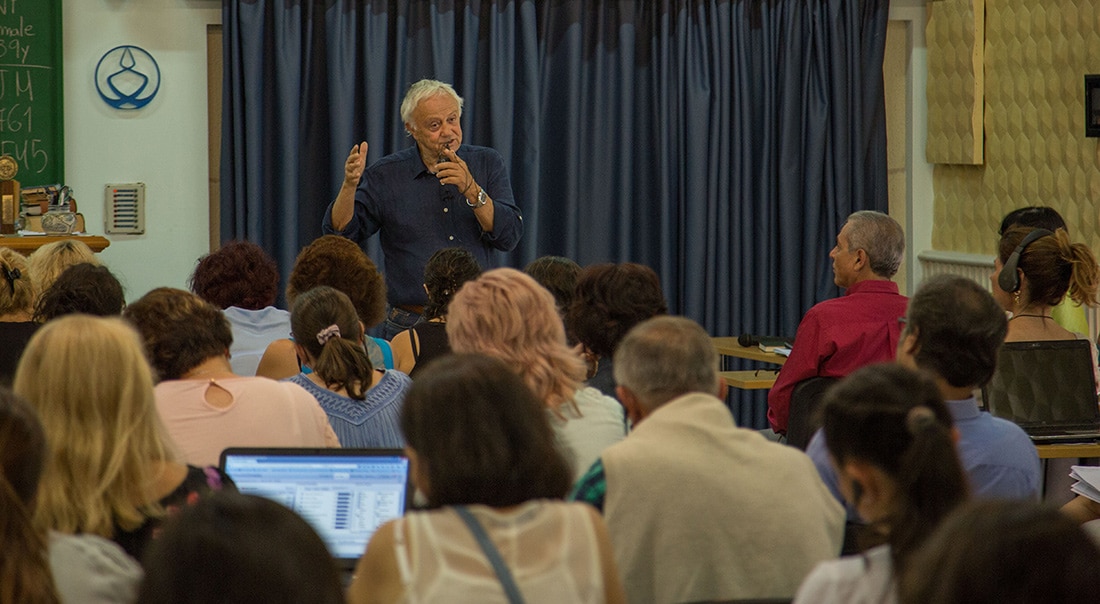Nothing seems to excite him more than the thought of his days in India. George Vithoulkas, widely regarded as ‘the maestro of classical homoeopathy’, says it is heartening to see homoeopathy growing in India at a fast clip. For the record, the homoeopathic market is expected to double in the country to Rs 5,873 crore in five years. He offers a reason for this growth, “Morality and spirituality in its essential sense are stronger in India than other countries.”
Homoeopathy’s growth in India is stunning: George Vithoulkas
George Vithoulkas is the founder of International Academy of Classical Homeopathy
Nothing seems to excite him more than the thought of his days in India. George Vithoulkas, widely regarded as ‘the maestro of classical homoeopathy’, says it is heartening to see homoeopathy growing in India at a fast clip. For the record, the homoeopathic market is expected to double in the country to Rs 5,873 crore in five years. He offers a reason for this growth, “Morality and spirituality in its essential sense are stronger in India than other countries.”
He admits that his explanation sounds strange. “But it is true,” he insists. “I know India from my experience of living there for a long period.” Vithoulkas, now 79, studied homoeopathy in South Africa and in Kolkata. He passed out from the Indian Institute of Homoeopathy, Calcutta, in 1966, and returned to Greece to practise and teach the world’s youngest system of medicine.
The Greek physician says tragedy is yet to engulf India and other developing countries in a big way. The tragedy he is referring to is the one caused by the overuse of allopathic drugs. “Countries such as India, Pakistan and those in South America are lucky that they cannot supply chemical drugs for all their people.” According to him, shortage of medical supplies is in a way a blessing in disguise for these non-developed countries: they haven’t yet suffered the damage that chemical drugs inflict upon people in rich countries.
But Vithoulkas knows it only too well that homoeopathy needs to grow much more to emerge as a ‘real alternative’ to the ‘chemicals-infested’ modern medicine, which has already made inroads into emerging markets.
“At this moment, homoeopathy is not ready to take over the bulk of medical care in any country,” he notes. But, he says, poor countries can afford to invest in promoting homoeopathy. “The conventional system of medicine has reached a dead end, and the new medicine will be the energy medicine that homoeopathy offers,” he claims. But then, what was that about homoeopathy lacking in scientific evidence?
He counters the argument raised famously in a 2005 Lancet article that compared the effect of homoeopathic medicines to that of the placebo effect. “This is not an argument against homoeopathy.
It is a pretentious excuse that the pharma industry uses to attack homoeopathy. It is almost ridiculous to believe that remedies that act on babies and animals have a placebo effect,” he says. There is a tinge of sarcasm, too. “If homoeopaths have the power to instal in the patient belief that can cure without remedies, then I will salute them as superhuman. I know only one person who was able to treat on the basis of belief and that person was Jesus Christ.”
Let’s not forget, he says, that it is homoeopathy that now epitomes ‘evidence-based medicine’, an idea originally introduced by practitioners of conventional medicine. Vithoulkas goes on to list reasons why governments should take solid initiatives to promote homoeopathy.
“Governments are elected by the people with the hope that they will work and protect them, not pharmaceutical companies. Homoeopathy’s remedies are cheap and can be produced locally. Using homoeopathic remedies also means saying no to the sideeffects of strong chemical drugs. Insurance systems that exist in the West have almost gone bankrupt due to massive rise in chronic diseases that require constant treatment with extremely expensive allopathic drugs.”
His forecast is that the new medicine will be ‘the energy medicine’. He emphasises that the segment that stands to benefit the most from the growth of homoeopathy will be companies in health insurance. “For that simple reason, those companies should finance relevant research in homoeopathy.”
Asked about the cost-effectiveness of homoeopathic medicines in the West where consulting fees are high, he says, “Remedies in the West are as cheap as in India, but the doctors who devote a lot of time in order to take a proper case are costly according to the paying standards of the West. That is it.”
About homoeopathy’s current status and its potential, this winner of the prestigious Right Livelihood Award adds, “It is a system in evolution without real standards at this moment… a lot of rubbish has been injected into the system, most of which were quickly rejected, but a few other ideas remain and continue to contaminate the system.” It is in creating order in the system that governments must focus, he notes.
Vithoulkas, founder of the Alonissos, Greece-based International Academy of Classical Homeopathy, which offers post-graduate courses to homoeopaths, sums up with a prophet’s flourish, “Homoeopathy has a great strength and also an equally great weakness. It is very effective only if it is practised correctly; its weakness lies in the fact that it is very difficult to be really mastered.”



